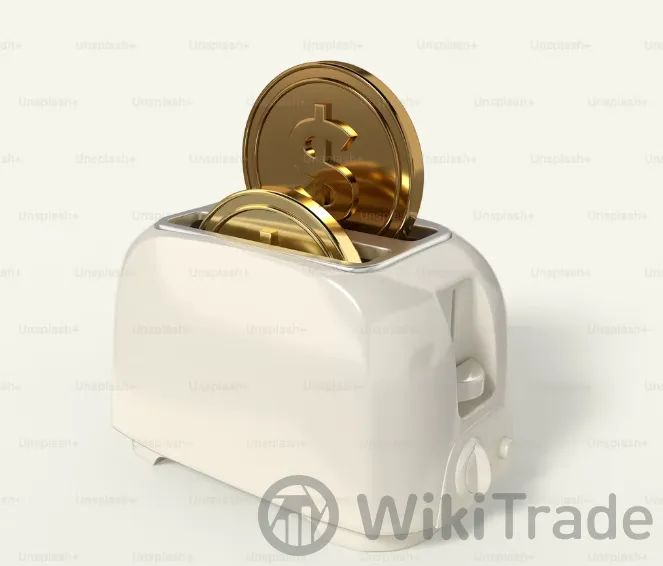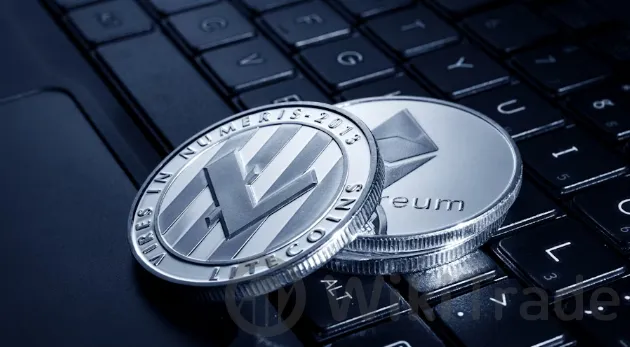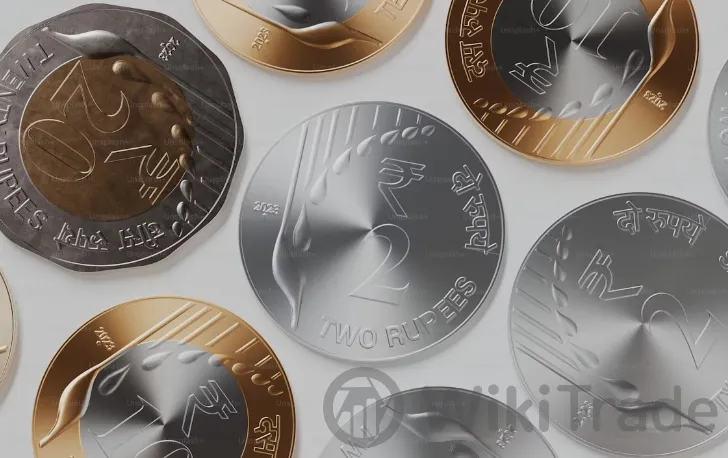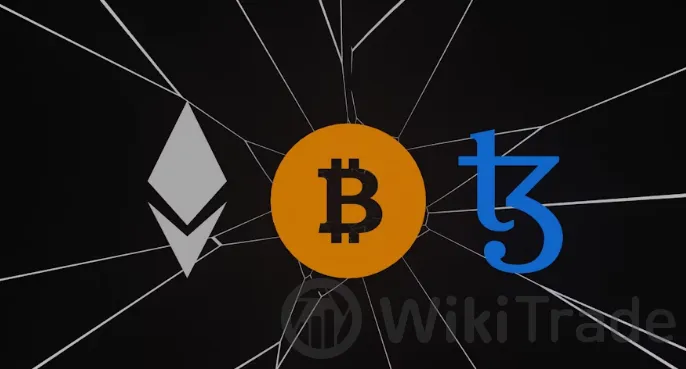How to send Bitcoin to another wallet?
Abstract: Sending Bitcoin involves specific steps. First, you need to open your Bitcoin wallet and click on the 'Send' button. Then, input the recipient's wallet address into the destined field. Input the amount to be sent in Bitcoin or its equivalent in your local currency. Review the details and finally, confirm the transaction. Be sure to double-check address details before sending.
Even though many investors are using wallets as their main approach to investing in crypto, they often encounter uncertainties about the functions that wallets offer. For example, they may feel confused when attempting to send Bitcoin to another wallet or struggle to find ways to convert their digital assets into cash. In this discussion, we not only address these common questions but also delve into other aspects related to the overall situation of crypto wallets and Bitcoin investment.
Sending Bitcoin from one wallet to another is a fundamental aspect of managing your cryptocurrency holdings. This process involves a series of steps that ensure the secure and accurate transfer of digital assets between parties. To initiate a Bitcoin transfer, you must first access your Bitcoin wallet, where your holdings are stored securely. Whether you use a software wallet on your computer or mobile device, a hardware wallet for enhanced security, or an online wallet provided by a cryptocurrency exchange, the key is to have control over your private keys, which are crucial for authorizing transactions.

(unsplash.com)
Once you have accessed your Bitcoin wallet, you need to locate the option to send Bitcoin. This feature is typically found within the wallet interface and allows you to enter the recipient's Bitcoin address and the amount of Bitcoin you wish to send. It is crucial to double-check the recipient's Bitcoin address to avoid any errors, as transactions made to incorrect addresses are irreversible in the decentralized blockchain network.
After entering the recipient's address and specifying the amount of Bitcoin to send, you may have the option to adjust the transaction fee based on network congestion and desired processing speed. The transaction fee incentivizes miners to include your transaction in the next block on the blockchain, ensuring timely processing. Once you have reviewed and confirmed all transaction details, including the recipient's address, amount, and fee, you can proceed to authorize the transfer.
Confirming the transaction typically requires additional authentication, such as entering a secondary code or passphrase, to validate your identity and authorize the transfer of funds. Once the transaction is confirmed, it is broadcast to the Bitcoin network for processing. Transactions on the blockchain require multiple confirmations before they are considered final, providing security and immutability to the transfer process.
As the transaction progresses through the network and receives confirmations, you can monitor its status using a blockchain explorer, a tool that allows you to track the flow of transactions on the blockchain. Once the required confirmations are received, the Bitcoin transfer is completed, and the recipient's wallet reflects the updated balance.
How long does Bitcoin take to send?
The time required to send Bitcoin from one wallet to another can vary based on factors like network congestion, transaction fees, and block confirmation speed. Typically, a Bitcoin transaction may take anywhere from a few minutes to several hours to be confirmed on the blockchain.
When you initiate a Bitcoin transfer, the transaction is broadcast to the decentralized network of nodes for validation. Miners then include the transaction in a block, which becomes part of the blockchain. The duration for your transaction to be included in a block depends on the current network activity and the transaction fee you've attached to incentivize miners to prioritize your transaction.
Transactions with higher fees are usually processed faster, as miners give precedence to transactions with higher fee rates due to the financial incentive. If the network is congested and many transactions are vying for block space, it might take longer for your transaction to be confirmed.
Under normal network conditions and with an appropriate transaction fee, a Bitcoin transaction can typically be confirmed within 10 minutes to an hour. However, during high network congestion, it could take several hours for a transaction to be processed and confirmed on the blockchain. In extreme cases of network congestion, confirmation times could exceed several hours.

(unsplash.com)
What can you do to Bitcoin with your online wallet?
With an online Bitcoin wallet, you can perform a wide range of crucial functions to manage your cryptocurrency holdings effectively in addition to sending Bitcoin to other wallets. Here are some common tasks you can typically accomplish using an online wallet:
View Transaction History: Online wallets provide a transaction history feature that allows you to view all incoming and outgoing transactions associated with your wallet. This feature helps you track your spending, income, and overall transaction activity.
Manage Addresses: You can create multiple receiving addresses within your online wallet for enhanced privacy and security. By managing addresses, you can organize incoming transactions and distinguish between different sources of funds.
Check Balance: Online wallets display your current Bitcoin balance, providing you with real-time information on the amount of cryptocurrency you hold in the wallet.
Set Transaction Fees: Some online wallets allow users to customize transaction fees based on their preferences. You can choose between different fee options to prioritize transaction speed or cost-effectiveness.
Secure Your Wallet: Online wallets offer security features such as two-factor authentication (2FA) and backup options to protect your funds from unauthorized access or loss. It is crucial to enable these security measures to safeguard your Bitcoin holdings.
Buy and Sell Bitcoin: Some online wallets integrate with cryptocurrency exchanges, enabling users to buy and sell Bitcoin directly from their wallet interface. This functionality streamlines the trading process and provides convenient access to cryptocurrency markets.
Exchange Cryptocurrencies: Online wallets may support the exchange of Bitcoin for other cryptocurrencies or vice versa. This feature allows you to diversify your cryptocurrency portfolio without needing to transfer funds to external exchanges.
Mobile Access: Many online wallets offer mobile apps, allowing you to manage your Bitcoin on the go. With mobile access, you can monitor your balance, initiate transactions, and access crucial wallet features from your smartphone or tablet.
Receive Notifications: Online wallets often provide notification features to alert you about incoming transactions, account activity, or critical updates. These notifications help you stay informed about changes in your wallet and maintain control over your cryptocurrency assets.
Crypto wallet: your assistant in crypto payment
In the fast-evolving landscape of digital finance, a crypto wallet emerges as a steadfast companion, a trusted assistant in the realm of cryptocurrency payments. Much more than a mere receptacle for digital assets, a crypto wallet embodies the essence of security, convenience, and empowerment in managing and transacting with cryptocurrencies.

(unsplash.com)
Imagine a digital vault, safeguarding your private keys with unwavering vigilance, ensuring that your funds remain beyond the reach of prying eyes and malicious actors. Within this secure sanctuary, your Bitcoin, Ethereum, and a myriad of altcoins coexist harmoniously, unified under the umbrella of a multi-currency wallet that transcends boundaries and limitations.
With a perfect interface and intuitive design, the crypto wallet becomes a gateway to a world of possibilities, where transactions flow effortlessly and information is at your fingertips. QR codes dance across screens, facilitating instant transfers with a simple scan, eliminating the need for cumbersome wallet addresses, and streamlining the payment process with elegant efficiency.
Mobile accessibility breathes life into the concept of on-the-go payments, empowering individuals to manage their digital assets with unprecedented flexibility and freedom. Whether you're settling a bill at a local cafe or engaging in cross-border commerce with global partners, the crypto wallet stands by your side, a beacon of reliability in an ever-changing financial landscape.
Real-time price updates pulse through the veins of the wallet, providing a heartbeat of market information that guides your payment decisions and investment strategies. Privacy and anonymity cloak your transactions, preserving the fundamental principles of financial freedom and discretion in a world that values confidentiality and security.
As you explore the realms of decentralized finance and smart contracts, the crypto wallet morphs into a versatile tool, enabling interactions with blockchain-based services and the execution of automated transactions. Smart contract support opens doors to a new era of programmable money, where transactions are governed by code and executed with precision and transparency.
In essence, a crypto wallet transcends the boundaries of traditional finance, ushering in a new paradigm of digital empowerment and financial autonomy. It embodies the spirit of innovation, resilience, and progress in a world where technology shapes the future of commerce and connectivity.
How many kinds of crypto wallets are here?
Cryptocurrency wallets come in a wide range of forms, each catering to different needs and preferences of users. Broadly speaking, crypto wallets can be categorized into two main types: hot wallets and cold wallets.

(unsplash.com)
Hot wallets, also known as online wallets, are connected to the internet and are more convenient for frequent transactions. They can further be divided into desktop wallets, mobile wallets, and web wallets. Desktop wallets are software applications installed on a computer, offering full control over the wallet but requiring regular software updates and security measures. Mobile wallets, as the name suggests, are designed for use on smartphones and provide mobility and accessibility for on-the-go transactions. Web wallets operate through web interfaces, allowing users to access their funds from any internet-connected device, but they require trust in the security of the service provider.
On the other hand, cold wallets, or offline wallets, are not connected to the internet and are thus considered more secure for long-term storage of cryptocurrencies. Hardware wallets and paper wallets are the primary forms of cold wallets. Hardware wallets store the user's private keys on a hardware device, such as a USB drive, providing an extra layer of security by keeping the keys offline. Paper wallets involve printing private and public keys on a physical piece of paper, offering a highly secure way to store cryptocurrency, as it is not susceptible to hacking but requires careful handling and safekeeping.
In addition to these main categories, there are also multi-signature wallets, which require multiple private keys to authorize a transaction, adding an extra layer of security and control. Moreover, custodial wallets provided by cryptocurrency exchanges and financial institutions offer convenience but necessitate trust in the service provider to safeguard the users' funds.
To learn more about these crypto wallets, click here: https://www.jetir.org/papers/JETIR2312012.pdf
The function of the Bitcoin wallet address
A Bitcoin wallet address is a unique identifier that allows individuals to send, receive, and store Bitcoin in the cryptocurrency network. It consists of a string of alphanumeric characters, typically starting with a “1” or “3,” and serves as a destination for Bitcoin transactions. Here are the primary functions of a Bitcoin wallet address:
| Function | Description |
| Receiving Bitcoin | A Bitcoin wallet address serves as a destination for receiving Bitcoin from other parties. Users share their unique wallet addresses to receive funds securely. |
| Sending Bitcoin | Users utilize wallet addresses to send Bitcoin to other wallets or addresses. Senders specify the recipient's address as the destination and sign the transaction with their private key to authorize the transfer of funds. |
| Identity Protection | Bitcoin wallet addresses protect user anonymity by not revealing the owner's identity by default. This enhances privacy and security compared to traditional banking systems that require personal information for transactions. |
| Security and Ownership | Wallet addresses are generated based on the user's private key, crucial for accessing and controlling associated funds. Keeping the private key secure ensures users maintain ownership and control over their Bitcoin holdings. |
| Verification and Record-Keeping | Wallet addresses verify transactions on the blockchain and maintain a transparent record of all Bitcoin transactions. Each transaction includes sender and recipient addresses, enabling participants to track fund flow on the public ledger, ensuring integrity and immutability. |
| Compatibility with Exchanges | Bitcoin wallet addresses are compatible with cryptocurrency exchanges, payment processors, and services supporting Bitcoin transactions. Users can deposit or withdraw funds from exchanges using their wallet addresses, facilitating perfect interactions within the ecosystem. |
Bitcoin transactions: how many types there are?
There are wide-ranging types of Bitcoin transactions that you can make in your adventure. Here are some of them:
| Transaction | Description |
| Standard Transactions | These are the most common types of Bitcoin transactions where users send funds from one wallet address to another. Standard transactions involve transferring a certain amount of Bitcoin from the sender's address to the recipient's address, recorded on the blockchain. |
| Multi-Signature Transactions | Multi-signature (multi-sig) transactions require multiple private k to authorize a Bit n transfer. This type of transaction enhances security by requiring the approval of multiple parties before funds can be spent. |
| Segregated Witness (SegWit) Transactions | SegWit is a protocol upgrade that changes how transaction data is stored. SegWit transactions separate the witness (signature) data from the transaction data, allowing more transactions to fit in a block and improving scalability. |
| Coinbase Transactions | Coinbase transactions are special transactions where new Bitcoins are created as a block reward for miners who successfully mine a new block. These transactions include the generation of new coins along with fees collected from transactions in the block. |
| Locktime Transactions | Locktime transactions allow users to specify a future block height or timestamp before which a transaction cannot be added to the blockchain. This feature enables time-based conditional payments and other advanced transaction types. |
| Child-Pays-For-Parent (CPFP) transactions | In CPFP transactions, a child transaction with a high fee is created to incentivize miners to confirm a parent transaction with a low fee. This method helps accelerate the confirmation of stuck transactions. |
| Payment Channel Transactions | Payment channels, such as the Lightning Network, facilitate off-chain transactions between users. These transactions occur off the main blockchain and enable instant, low-cost micropayments without waiting for block confirmations. |
| Atomic Swaps | Atomic swaps allow for the trustless exchange of different cryptocurrencies without the need for an intermediary. This type of transaction involves smart contracts that ensure both parties receive their intended cryptocurrency simultaneously. |
| CoinJoin Transactions | CoinJoin is a privacy-enhancing technique that combines multiple Bitcoin payments from different users into a single transaction. This process obfuscates the trail of individual transactions, enhancing privacy on the blockchain. |
| Escrow Transactions | Escrow transactions involve a trusted third party holding funds in a secure account until predefined conditions are met. Once the conditions are satisfied, the funds are released to the designated recipient. |
How to convert Bitcoin to cash through online platforms?
Converting Bitcoin to cash serves practical purposes, providing liquidity for daily expenses and stability amid market volatility. The transition enables individuals to meet financial obligations requiring fiat currency while leveraging the decentralization of cryptocurrencies. It also allows for profit-taking or risk mitigation in response to fluctuating market conditions.
Here is a comprehensive guide on how to convert Bitcoin to cash online:
Deposit Bitcoin: Transfer your Bitcoin from your wallet to the exchange platform's Bitcoin wallet. This usually involves generating a deposit address on the exchange and initiating the transfer from your wallet. Be mindful of transaction fees and processing times associated with the transfer.
Sell Bitcoin: Once your Bitcoin is deposited into the exchange platform, navigate to the trading section and locate the option to sell Bitcoin for cash. Specify the amount of Bitcoin you wish to sell or the equivalent cash value you want to receive.
Select Withdrawal Method: Choose the withdrawal method through which you want to receive cash. Options may include bank transfer, PayPal, credit/debit card, or other payment methods supported by the platform. Each method may have differing times and fees associated with it.
Complete the Transaction: Confirm the transaction details, including the amount of Bitcoin being sold, the exchange rate, and the chosen withdrawal method. Double-check all information before finalizing the transaction to avoid errors.
Withdraw Cash: Once the transaction is processed and confirmed, the cash equivalent will be credited to your selected payment method. Depending on the withdrawal method, it may take a few hours to several business days for the cash to reflect in your account.
Monitor the Transaction: Keep track of the transaction status on the exchange platform and your payment method to ensure a smooth and timely cash withdrawal.
Consider Security Measures: As you are dealing with financial transactions online, prioritize security by enabling two-factor authentication, using strong passwords, and being cautious of phishing attempts or fraudulent activities.
Tax Implications: Be aware of the tax implications of converting Bitcoin to cash, as it may have capital gains tax obligations depending on your jurisdiction and the profit generated from the transaction.
You can learn more about the transactions of turning crypto into cash through this video: https://www.youtube.com/watch?v=5olILJjMlVM

(unsplash.com)
FAQ:
Is it safe to trade Bitcoin with a debit card on cryptocurrency platforms?
Trading Bitcoin with a debit card is generally considered safe, but it's crucial to use well-known and secure exchanges. Ensure that the platform has robust security measures in place to protect your financial information and funds.
Can I trade Bitcoin with my credit card?
Yes, many cryptocurrency exchanges and platforms allow users to buy or trade Bitcoin using a credit card. You can typically link your credit card to the exchange account and use it to purchase Bitcoin directly. However, it's crucial to check the exchange's policies, fees, and security measures regarding credit card transactions before initiating any trades.
How to get Bitcoin verified on the Cash app?
To verify your Bitcoin transactions on the Cash App, you need to complete the account verification process, which typically involves providing personal information such as your full name, date of birth, and Social Security number. Once your account is verified, you can buy, sell, and transfer Bitcoin within the Cash App platform. Additionally, enabling two-factor authentication and following security best practices will help protect your Bitcoin holdings on the app.
Are there any tax implications when buying or selling Bitcoin on Cash App?
Depending on your jurisdiction, buying or selling Bitcoin on Cash App may have tax implications. It's recommended to consult with a tax professional or accountant to understand your tax obligations related to cryptocurrency transactions and ensure compliance with relevant regulations.
What should I do if my Bitcoin transaction on the Cash App is pending or delayed?
If your Bitcoin transaction on Cash App is pending or delayed, you can contact customer support for assistance. Provide details about the transaction, such as the amount, recipient address, and transaction ID, to help expedite the resolution process.
What are the fees associated with buying Bitcoin on Cash App?
Cash App typically charges a fee for Bitcoin transactions, which is displayed at the time of purchase. Additionally, users may encounter fees related to network congestion or exchange rates. It's crucial to review the fee structure on Cash App before buying Bitcoin.
Taking good advantage of your digital assistant, you will find your journey in the crypto space no more unbearable. Also, there are always more information and functions waiting to find out.




Top News
 WikiTrade
WikiTrade WikiTrade
WikiTrade WikiTrade
WikiTrade WikiTrade
WikiTrade WikiTrade
WikiTrade WikiTrade
WikiTrade WikiTrade
WikiTrade WikiTrade
WikiTrade WikiTrade
WikiTrade WikiTrade
WikiTrade


